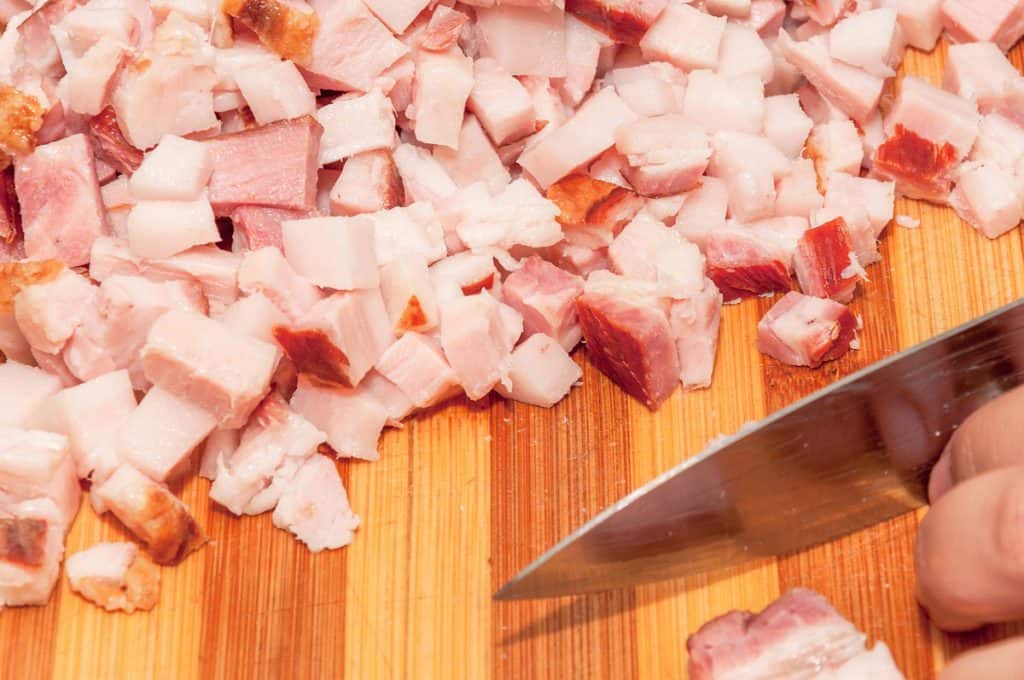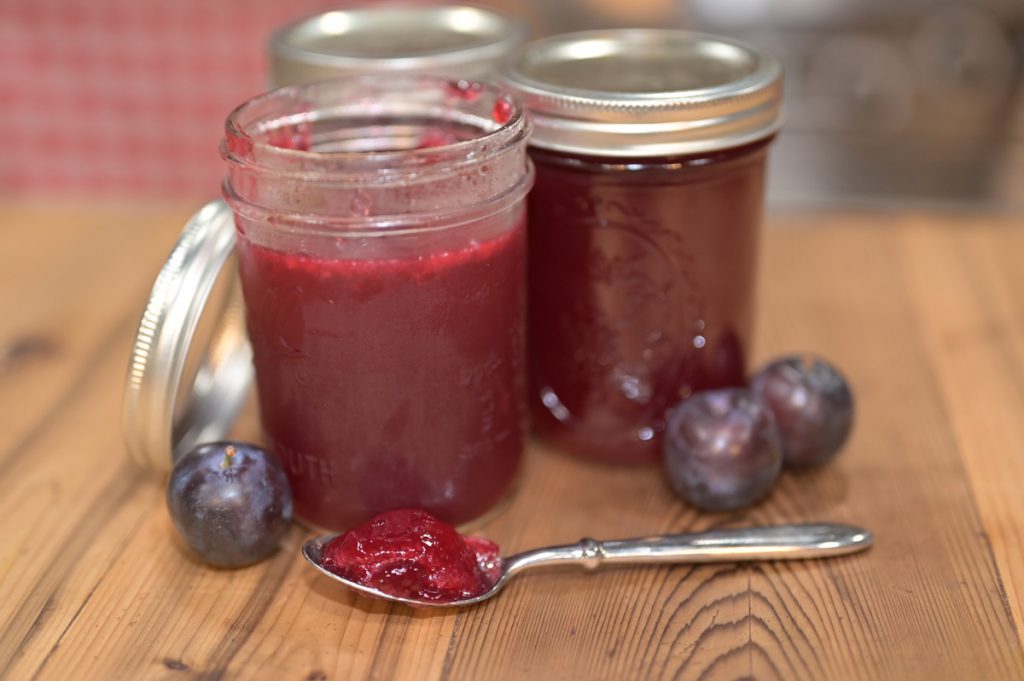The rising cost of food makes eating healthy whole foods more and more difficult. One of the benefits of a freeze dryer is being able to preserve food at the peak of harvest, when foods are most affordable, to enjoy throughout the year ahead. It’s important to know what foods cannot be freeze dried to avoid wasting your time and your grocery budget.
Hey there, fellow food preservers and homestead hustlers! If you’re anything like me, you’ve probably stared at a pack of bacon and thought, “Man, I wish I could stash this forever without it going bad!” I mean, bacon is basically the holy grail of breakfast, right? So, when I got my hands on a freeze-dryer, my first wild idea was to turn those greasy, delicious strips into shelf-stable gold. But here’s the big question we’re tackling today: Can you freeze-dry bacon? Spoiler alert: Yeah, you can, but it ain’t as simple as tossing it in and calling it a day. Let’s dive into the nitty-gritty of freeze-drying bacon, why it’s a bit of a tricky beast, and whether it’s worth the hassle—or if you should just stick to good ol’ freezing.
What Even Is Freeze-Drying, Anyway?
Before we get to the bacon drama, let’s break down what freeze-drying is, ‘cause I know some of y’all might be new to this game. Freeze-drying is this fancy-shmancy way of preserving food by sucking out almost all the water in it. We’re talking like 99% of the moisture—poof, gone! It’s different from just freezing stuff in your deep freezer or dehydrating in an oven. Here’s how it works in plain English:
- First, the food gets frozen solid, way colder than your average freezer.
- Then, a machine creates a vacuum and slowly heats things up just enough so the ice in the food turns straight into vapor. No melting into a puddle—it just skips that step.
- What you’re left with is super light, crispy food that can sit on a shelf for years without spoiling. Think astronaut ice cream or those freeze-dried berries you see at the store.
I’ve had crazy success with stuff like strawberries, corn, and even eggs using my freeze-dryer It’s a game-changer for building a pantry that lasts But not everything plays nice with this process, and bacon? Well, it’s got some attitude.
So, Can You Freeze-Dry Bacon or Not?
Alright let’s cut to the chase. Yes, you can freeze-dry bacon. I’ve done it myself, just to see what the heck would happen. You pop those strips into the freeze-dryer let it do its magic for a day or so, and out comes something that looks like bacon but feels like crispy paper. It’s wild! You can crunch it up or rehydrate it with a lil’ water, and it sorta comes back to life. But here’s the big fat “but”—it ain’t shelf-stable like other freeze-dried goodies. And trust me, I was bummed as heck when I figured this out.
See, bacon’s got a ton of fat in it, and fat is the sneaky lil’ enemy of freeze-drying. Unlike water, fat doesn’t just vanish during the process. It sticks around, and that means there’s still a chance for bacteria to hang out or for the fat to go rancid over time. Even though you’ve yanked out most of the moisture, the leftover fat can cause trouble if you try to store it at room temp for months or years. So, while you can freeze-dry bacon, it’s not gonna be your 25-year emergency stash like freeze-dried peas or potatoes.
Why Bacon Doesn’t Play Nice with Freeze-Drying
Let’s get into the “why” behind this bacon betrayal. I ain’t no scientist, but after messing around with my freeze-dryer and doing some digging, here’s what I’ve pieced together about why bacon gives us such a hard time:
- High Fat Content: Bacon is basically a fat bomb, especially if you’re working with thick-cut or super greasy strips. That fat doesn’t sublimate (fancy word for turning from ice to vapor) like water does. So, even after freeze-drying, there’s still oily bits hanging around, ready to spoil if not stored right.
- Raw Meat Risks: If you’re freeze-drying raw bacon, remember this process don’t cook it or kill off nasty bugs like salmonella. When you rehydrate it later, it’s still raw, so you gotta cook it proper before eating. If the fat didn’t dry out fully, hidden bacteria could be a problem.
- Texture Weirdness: Even if you get past the safety stuff, freeze-dried bacon don’t always come back to its former glory. Sometimes it’s too crumbly or gets a funky, oily feel when you add water. It’s just not the same as fresh-cooked bacon, ya know?
I remember thinking, “Okay, maybe if I trim off some fat first, it’ll work better.” Nah, still didn’t make it shelf-stable. The fat’s just too much a part of bacon’s DNA. So, while it’s doable, it’s not ideal for long-term storage without some extra care
How to Freeze-Dry Bacon (If You Still Wanna Try)
Now, if you’re stubborn like me and wanna give freeze-drying bacon a shot anyway, I gotchu. Here’s a quick rundown of how I did it, step by step. Just don’t say I didn’t warn ya about the results!
- Prep Your Bacon: Lay out your bacon strips on a tray. You can use raw bacon or pre-cook it if you want a slightly safer starting point. I’ve tried both, and pre-cooking helps a bit with the fat issue ‘cause some of it renders off.
- Pre-Freeze: Stick the tray in your freezer for a few hours ‘til the bacon’s rock hard. This speeds up the freeze-drying process later.
- Load the Freeze-Dryer: Pop the frozen bacon into your freeze-dryer trays. Make sure the strips ain’t overlapping too much, or they’ll stick together.
- Run the Cycle: Set your machine to run. It usually takes 24-36 hours, depending on how fatty the bacon is. Mine took forever ‘cause it was extra greasy.
- Check and Store: Once it’s done, the bacon should feel dry and brittle. Don’t just leave it on the shelf, though! Store it in an airtight container or vacuum-sealed bag, and keep it in the fridge or freezer to be safe.
Pro tip: If you’re doing raw bacon, label it real clear so nobody eats it straight outta the bag thinking it’s ready-to-go. And honestly, plan to use it up within a few weeks, even if it’s in the fridge. I had some sit for a month, and it started smelling off, which ain’t a risk I’m willing to take.
Storing Freeze-Dried Bacon the Right Way
Since freeze-dried bacon ain’t gonna last on the pantry shelf for decades like other foods, storage is everything. Here’s how I handle it to keep things safe and tasty:
- Refrigerate or Freeze: Like I keep saying, stick it in the fridge or freezer after freeze-drying. I’ve found the fridge works for a couple weeks, but the freezer is better if you’re not using it right away.
- Vacuum Seal It: Use a vacuum sealer to lock out air and moisture. This helps slow down any spoilage from that pesky fat content. I got a cheap sealer, and it’s been a lifesaver for stuff like this.
- Small Portions: Don’t freeze-dry a whole pound and store it in one bag. Break it into smaller chunks so you’re not exposing the whole batch to air every time you wanna snack.
- Use It Quick: Don’t let it sit forever, even in the freezer. I aim to use mine within a month or two, tops. After that, I just don’t trust it.
I’ve had buddies ask, “Why even bother freeze-drying if you still gotta refrigerate it?” And honestly, they got a point. For me, it was more about experimenting and seeing if I could make lightweight bacon for camping trips or something. Spoiler: It’s okay for that, but freezing is still easier.
Freeze-Drying vs. Other Ways to Preserve Bacon
Speaking of freezing, let’s chat about how freeze-drying bacon stacks up against other preservation tricks I’ve tried. I figured a lil’ comparison might help you decide if it’s worth the effort or if you should just skip straight to something simpler. Check out this table I whipped up:
| Method | Shelf Life | Ease of Use | Taste/Texture After | Best For |
|---|---|---|---|---|
| Freeze-Drying | Weeks (in fridge/freezer) | Hard (needs equipment) | Kinda crumbly, oily when rehydrated | Short-term, lightweight needs |
| Freezing | Up to 12 months | Easy (just a freezer) | Almost like fresh after thawing | Long-term storage, everyday use |
| Canning | 1-2 years (if done right) | Medium (needs skills) | Different, often softer | Emergency pantry, no power needed |
| Smoking/Curing | Months (if stored cool) | Hard (needs know-how) | Smoky, chewy, unique flavor | Traditional vibes, off-grid living |
For real, freezing is my go-to for bacon. I just wrap it tight in butcher paper or vacuum seal it, and it’s good for nearly a year in my deep freezer. I’ve got a generator as backup in case the power goes out, ‘cause losing a stash of bacon would break my heart. Canning bacon is a whole other beast—I’ve done it with pressure canning, rolling the strips in parchment paper, and it works for emergencies, but the texture ain’t my fave. Smoking or curing is awesome if you’ve got the setup, but it’s a lotta work. Freeze-drying? It’s more of a “cool, I tried it” thing than a practical move for bacon.
Should You Freeze-Dry Bacon, Tho?
Here’s where I get real with ya. After all my tinkering, I gotta say freeze-drying bacon is more hassle than it’s worth for most folks. If you’re looking to build a long-term food stash for your homestead or prepping for tough times, bacon ain’t the best candidate for your freeze-dryer. Stick to stuff like veggies, fruits, or lean meats that actually stay shelf-stable for years. I’ve got freeze-dried corn and berries in my pantry that’ll outlast me, and I don’t gotta worry about ‘em spoiling.
That said, there’s a couple reasons you might still wanna mess with freeze-drying bacon:
- Lightweight Snacks: If you’re into backpacking or camping, freeze-dried bacon is super light and don’t take up much space. Just keep it cool in a sealed bag and use it quick.
- Experimentation Fun: If you’re like me and just love playing mad scientist in the kitchen, it’s a neat project. I mean, who don’t wanna say they’ve freeze-dried bacon at least once?
- Short-Term Storage: Maybe you’ve got a big batch of bacon and wanna preserve it for a few weeks without taking up freezer space. This could work if you’ve got fridge room.
But for everyday life? Nah, just freeze it or cure it. Save your freeze-dryer for the stuff it’s really good at.
What I Learned from My Bacon Experiment
I’ll wrap this up with a lil’ story from my own kitchen. When I first got my freeze-dryer, I was hyped to try everything. Bacon was top of the list ‘cause, well, it’s bacon! I loaded up a tray of raw strips, ran the cycle, and pulled out these weird, brittle pieces. Looked cool, but when I rehydrated a piece to cook, it was greasy in a bad way, not a yummy way. I stored some in the fridge, used it within a week for a camping trip, and it was… okay. Not great, just okay. The rest I forgot about for a month, and yeah, it didn’t smell right. Lesson learned—bacon and freeze-drying ain’t besties.
Since then, I’ve stuck to freezing my bacon hauls. I buy in bulk when it’s on sale, wrap it up tight, and it’s ready whenever I need a sizzle fix. My freeze-dryer gets used for garden veggies and herbs instead, stuff that really shines with this method. If I ever try bacon again, I’ll pre-cook it first and only do small batches for short-term use. Live and learn, right?
Other Foods That Don’t Freeze-Dry Well (Just So You Know)
While we’re on the topic, I figured I’d toss in a quick heads-up about other stuff that don’t jive with freeze-drying. Bacon ain’t the only troublemaker in the kitchen. Here’s a short list of things I’ve found—or heard through the grapevine—that you might wanna skip:
- Butter: Too much fat, just like bacon. It don’t dry out right and gets messy.
- Chocolate: Leaves an oily mess and the texture goes wonky. Better off freezing it.
- Honey: Super sugary and thick, turns into a sticky disaster. Good news is, honey lasts forever on its own if stored right.
- Nuts and Nut Butters: Again, high fat content. They just don’t preserve well this way.
- Syrups: Too much sugar, not enough water. You’ll be scraping goo off your trays for days.
I’ve made the mistake of trying a few of these myself, and let’s just say it weren’t pretty. Stick to foods with decent moisture and low fat for the best freeze-drying results. Your machine—and your sanity—will thank ya.
Wrapping Up the Bacon Freeze-Dry Saga
So, there ya have it, folks. Can you freeze-dry bacon? Sure, you can, but it’s a bit of a letdown if you’re hoping for a long-lasting pantry staple. The fat in bacon makes it a poor fit for shelf-stable storage, and you’re better off keeping it in the fridge or freezer after freeze-drying—and using it up quick. If you’re curious, give it a whirl for fun or for lightweight travel food, but don’t bet on it for your emergency stockpile. Me? I’m sticking to freezing my bacon and saving my freeze-dryer for the real MVPs like berries and veggies.
Got any wild freeze-drying stories of your own? Or maybe you’ve got a sneaky trick for making bacon work better in the freeze-dryer? Drop a comment below—I’m all ears! And if you’re new to this whole food preservation thing, don’t sweat it. We all start somewhere, and every experiment (even the flops) teaches ya something new. Keep on preserving, my friends!

Why Are Some Foods Not Suitable for Freeze Drying
Because of the freeze drying process, certain foods aren’t suitable for freeze drying (just like some foods should not be dehydrated). Foods need the appropriate amounts of moisture, fats, and sugars to be suitable for this preservation method.
Freeze drying unsuitable foods will result in poor flavor, consistency and texture, and perhaps result in safety issues. It’s also possible for the food not to freeze dry fully (without you knowing), leading to spoilage at room temperature.

Some Candy & Cookies
Freeze dried Skittles and Jolly Ranchers have become a popular novelty. You’ll now see these being sold at many Farmer’s Markets and Street Fairs. Freeze drying candy and selling it could be a great way to help offset the cost of the freeze dryer.
However, candies with high sugar content and low water content may not freeze dry well (nor will chocolate-based candies – see below). This is one of those categories where I say have fun and experiment with freeze drying different candies, then decide what you like best.
Pure chocolate has a high fat content in the cocoa butter. It will leave an oily residue behind, and the texture will change. Instead of freeze drying, chocolate can be frozen, refrigerated or vacuum sealed to extend its shelf life.
Foods containing a small amount of chocolate as an ingredient can be freeze dried. However, the shelf life won’t be 25 years, and you will want to consume it within a few months.

Whole coffee beans should not be freeze dried due to the impenetrable and oily nature of the bean; they won’t be the same and will lose much of the coffee flavor and yet pick up the flavor of whatever food was in the freeze dryer before them.
Homesteading Hack: You can freeze dry brewed coffee! Pour it into the freeze dryer tray and turn on the freeze dryer. Use the resulting powder to make a cup of instant freeze dried coffee; just fill your cup with the powder and add hot water to taste.

The high sugar content and thickness of honey will not freeze dry; it will be a sticky, gooey mess. But don’t worry, as long as honey is stored properly in a clean container free of contaminants, the natural anti-microbial properties should give honey an indefinite shelf-life without any other preservation method.

While plain fruits freeze dry well, jams and jellies tend to have a very high sugar content that keeps them from freeze drying well. The good news is that binding up the water molecules in jams and jellies is ideal for the canning process because it inhibits mold and bacterial growth. This canned plum jelly recipe is one of our favorites.

The oil content in mayonnaise is so high it will not freeze dry well, and the texture will be extremely oily when reconstituted. This easy lacto-fermented mayonnaise recipe is a much better option and is quick to make while extending the life of homemade mayo.
Putting Bacon in a Harvest Right Freeze Dryer? Astronaut Bacon? TKOR Tests Freeze Dried Food
FAQ
How long will freeze dried bacon last?
Military Surplus Freeze Dried Canadian Bacon can be stored for 25+ years without spoiling, and can last up to 1 year in a Zip Lock bag with refrigeration once opened.
What food cannot be freeze dried?
- High sugar – Sugar bonds to water, which is actually why it’s good for preserving food. …
- High salt – Salt is used to melt snow and ice. …
- Honey – Honey doesn’t actually freeze; it’s a supersaturated solution with only about 18% water [source], and becomes “glassy” between (−44 and −60°F)
Why can’t you freeze bacon?
Freezing cooked bacon doesn’t work that well- because of the thin slices, it’s got a huge amount of surface area. The more surface area you have, the easier it absorbs freezer odor and develops off flavors.
How to rehydrate freeze dried bacon?
Simply rehydrate with water for a few minutes (instructions on the label), heat your liking and serve! Great for the kitchen OR the trail!! And pretty good right out of the pouch in a pinch as well for a crunchy snack!
